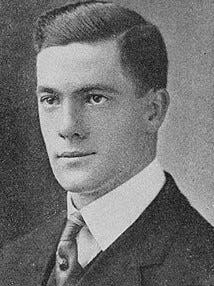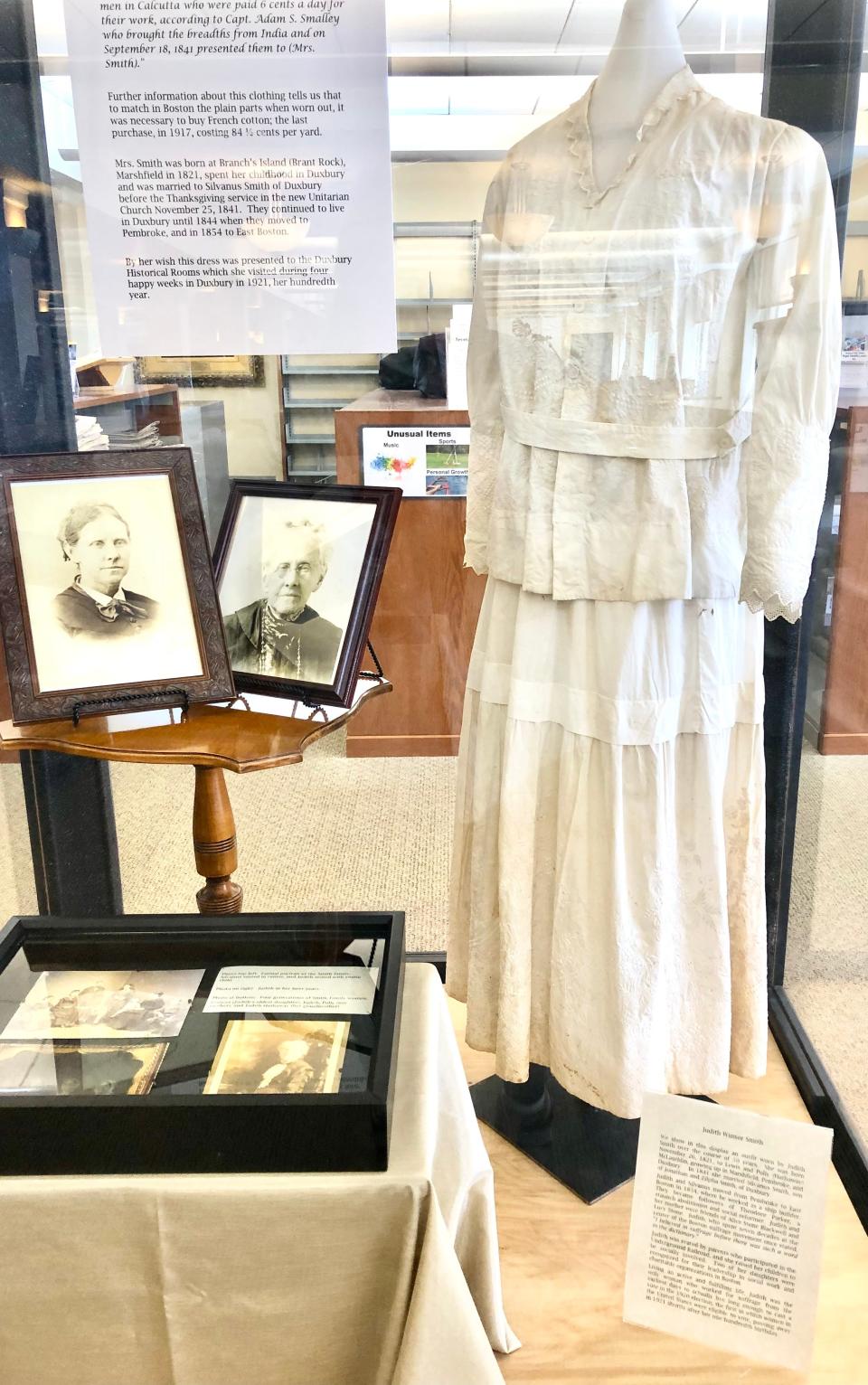Play ball! A little-known 'Big League' baseball story with Quincy and Kennedy connections
- Oops!Something went wrong.Please try again later.
HINGHAM – Every spring when the forsythia begin to bloom, Wayne Miller knows it's time to come up with another new baseball story.
"I have been a baseball nut since I was 5 years old, when I played with neighborhood kids at a field across from our house on Hudson Street in Quincy," he says. "That led to Little League, Babe Ruth League and high school baseball. Like millions of other boys, my dream of playing major league baseball ended when I couldn't hit the curveball."
Instead, Miller, 74, became a grown-up fan, historian and author with curves of a different kind.
He left Quincy for work in Maryland; 45 years later in retirement he moved back to the South Shore. Living with his wife, Ellen, at Linden Ponds senior community, he continues to do research on many parts of Quincy's history and writes and edits an entertaining and factual newsletter, Quincy History, for the Quincy Historical Society. I have enjoyed many of his original, well-researched and often humorous articles since 2017.
Every spring, he picks a different baseball theme for the newsletter. For the current issue, he writes: "With another major league baseball season just around the corner, it's time for a little-known big league baseball story with Quincy connections."
It also has Kennedy connections.
His article tells the story of how in 1918, during World War I, a number of major league baseball players "abandoned their American and National League teams" to work for companies that had baseball teams for which they could play. By working for companies providing essential services, the Wilson Administration would exempt them from the military draft and they could still play baseball.
Miller explains there was already a long tradition of industrial league baseball, where companies invited workers to play on competitive baseball teams.
Avoid the draft, join an 'essential' company baseball team
After Babe Ruth helped the Boston Red Sox win the World Series in September 1918, he joined the team of a steel plant in Lebanon, Pennsylvania, although he never played in a game. The war ended that November.
Miller got turned on to his current story about baseball during WWI "when I found out the JFK Library had a box of Joseph P. Kennedy Sr.'s papers about his time at the Fore River Shipyard (in Quincy). There was a treasure trove of material in the box about the (baseball) league and Kennedy himself, who managed the business side of the Fore River team.
"I love going through boxes very few people have ever seen!"
Joseph Kennedy Sr. as baseball team manager in Quincy
Kennedy, the father of John F. Kennedy and husband of Rose Kennedy, became assistant general manager at the Fore River Shipyard in Quincy in 1917. As part of his job, he had overall responsibility for the Fore River baseball operations; Kennedy had played baseball for Boston Latin School and was an excellent player, Miller says.
Kenneth Nash, from Weymouth, was on the Fore River Team; he later became a state senator, a judge at Quincy District Court and the state's first chief justice of the district court system, retiring at age 82 in 1970.

World's greatest magician comes to Quincy
In the current Quincy History newsletter, Miller also has a story about the time "the world's greatest magician Howard Thurston" came to Quincy in 1924; another about John Quincy Adams as a tobacco abolitionist and my favorite, one about Edna Austin, Quincy's first female city councilor, far ahead of her time, who died in 1979.
This excellent newsletter is mailed out to members and hopefully will soon be on the society's website; copies are available at the historical society at 8 Adams St. "I spend a crazy amount of time looking for stories related to Quincy that hopefully very few people know about and would be of interest to our members," Miller says. "I figure, since I grew up in Quincy, if I find it fascinating then our members will too."
Miller has written two books about the Quincy shipyard and is working on another about the Harvard-Boston Aero Meet held in Squantum 1910-1912. He has a lot of postcards from the event which are the basis of his book.
Thank you Wayne Miller for contributing so much to your local communities in "retirement."
Remembering Mattie Ali, of Duxbury

The Duxbury Rural and Historical Society on its website has paid tribute to the late Mattie Ali, longtime member and tireless volunteer, from 1998 to 2021, who recently died in Colorado.
"Mattie was instrumental in forming our historic clothing committee, she set up the framework of best practices they use to care for our collection, and she expanded our programming to share the community," the tribute says.
The current exhibit at the Duxbury Free Library of historic clothing features an outfit worn by Judith Winsor Smith, 1821-1921, influential local suffragette, from the early 1830s until she cast her first vote in the presidential election of 1920. She wore this outfit, with alterations, for over 5 decades. It will be on display until early June.
Reach Sue Scheible at sscheible@patriotledger.com.
This article originally appeared on The Patriot Ledger: Hingham writer celebrates spring with baseball saga you haven't heard

